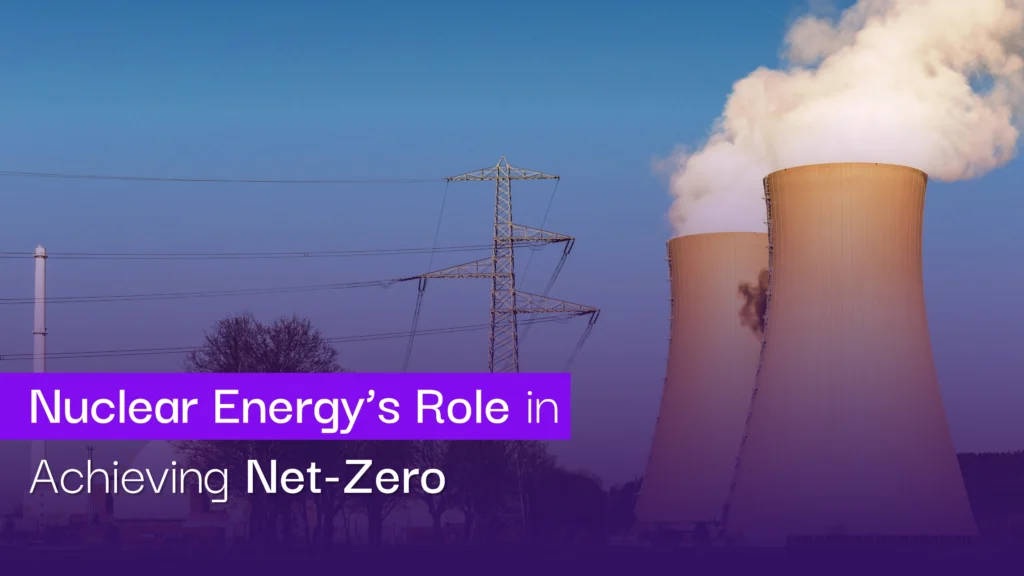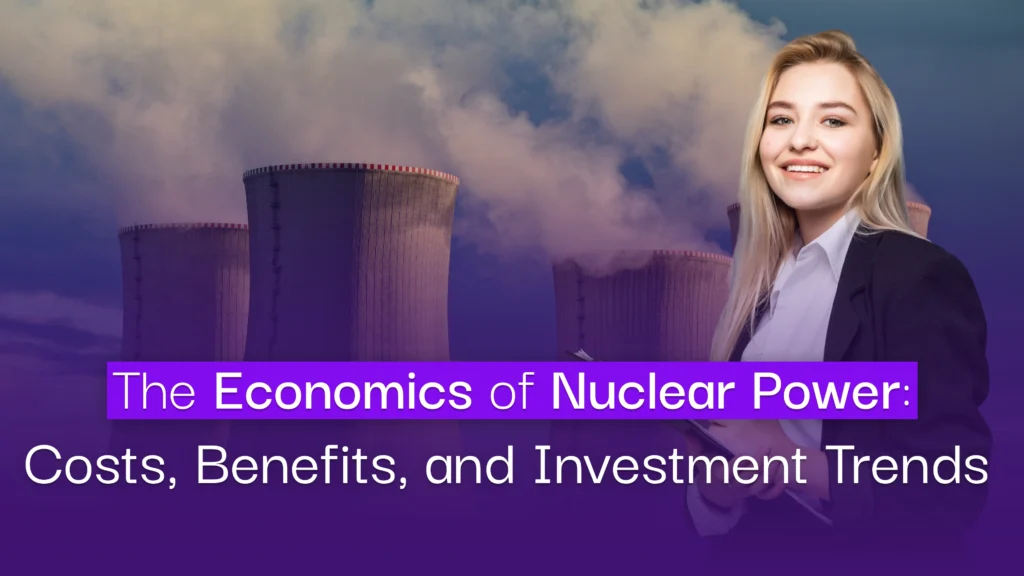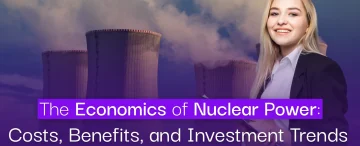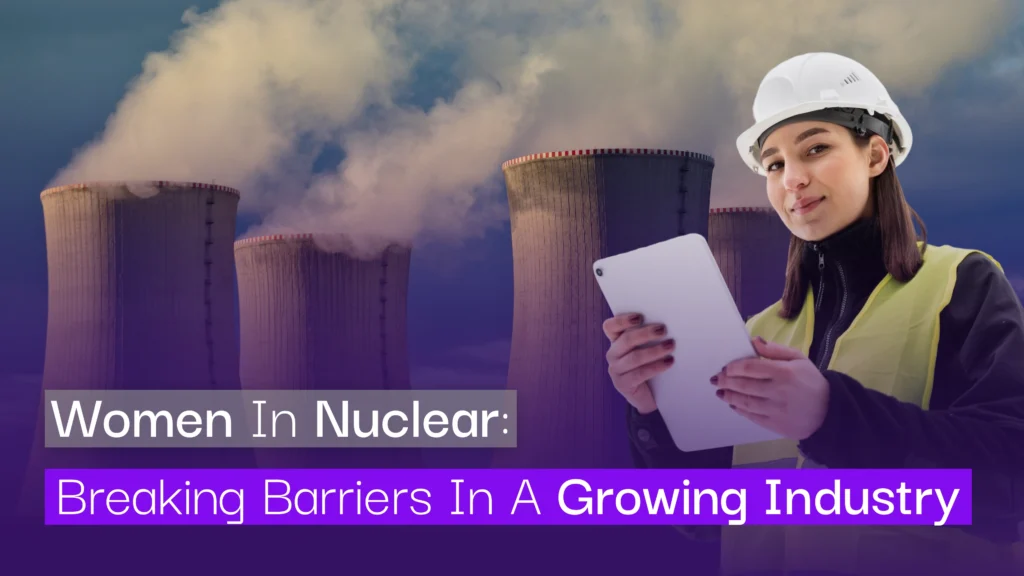The clock is ticking. If the world is serious about hitting net zero by 2050, we need more than good intentions and a few solar panels. We need every clean energy tool available and that includes nuclear.
While wind and solar grab headlines, nuclear energy quietly supplies massive amounts of low-carbon electricity every day. And with innovations like nuclear SMR technology, the upcoming potential of nuclear fusion, and a global shortage of skilled talent, this sector is about to become one of the busiest in the energy world.
That’s where companies like TRX International come in. They’re not just filling jobs they’re building the backbone of the future energy workforce through targeted nuclear recruitment, nuclear staffing solutions, and connecting organizations with nuclear workforce specialists. Companies are increasingly turning to TRX International to hire nuclear engineers and recruit nuclear professionals for critical projects across the globe.
Why Nuclear Still Matters in a Net Zero World
A lot of people don’t realize that nuclear already plays a huge role in cutting emissions. Unlike coal or gas, it produces steady power without pumping carbon into the air.
And here’s the thing:
- Solar and wind are fantastic, but the sun doesn’t shine at night, and the wind can go quiet for days.
- Batteries help, but they’re not yet at the scale we need.
- Nuclear fills that gap, delivering 24/7 electricity no matter the weather.
If we’re going to decarbonize fast, the nuclear industry will need thousands more professionals, from control room operators to policy experts—to keep plants running safely and to build new ones. This means employers worldwide will need to hire nuclear specialists, recruit nuclear engineers, and strengthen their nuclear talent pipeline to meet demand.
TRX International plays a pivotal role here, acting as a nuclear recruitment agency that ensures the right technical and leadership talent is available to push projects forward.
The Promise of Small Modular Reactors
You’ll hear the term nuclear small modular reactors (SMRs) more and more over the next decade. These are compact power plants, built in sections at factories, then shipped out for assembly.
Why they’re game changers:
- Faster build times mean they can go online in years, not decades.
- Lower costs make them attractive for countries without massive energy budgets.
- Built-in safety systems reduce operational risks.
- They can pair with renewables for a balanced energy grid.
As SMRs roll out worldwide, demand for nuclear engineering jobs will surge. TRX International is already placing nuclear workforce specialists in projects where these new reactors are being designed and tested. This requires employers to hire nuclear project managers, recruit nuclear contractors, and hire nuclear consultants who understand the complexities of modular design.
For organizations new to SMRs, working with a specialized nuclear staffing agency ensures they can secure experts quickly, avoiding costly project delays.
Fusion – The Long Game
It’s impossible to talk about the future of nuclear without mentioning nuclear fusion. While SMRs solve today’s needs, fusion could solve tomorrow’s.
Instead of splitting atoms like current reactors, fusion fuses them—producing enormous energy without the long-lived waste. It’s cleaner, safer, and virtually limitless.
Commercial fusion plants aren’t here yet, but research facilities are actively recruiting. They need engineers, scientists, and technicians to get them there. The nuclear careers pipeline is already feeding into these projects, with specialists transferring skills from today’s fission plants to tomorrow’s fusion labs.
Experience from existing nuclear power jobs, like maintenance, safety, and advanced engineering, will carry over, making it easier to hire nuclear technical staff and recruit nuclear safety experts when fusion technology scales up.
How the Workforce Will Change
The next generation of nuclear careers won’t look exactly like the last. Sure, we’ll still need reactor operators and engineers, but digital tools, AI monitoring, and advanced robotics are becoming part of everyday plant life.
Future nuclear roles will include:
- Cybersecurity specialists for plant systems
- Data analysts for predictive maintenance
- Remote operators for automated processes
- Environmental compliance managers for stricter regulations
That’s why nuclear recruitment services are shifting. Employers aren’t just looking for technical skill, they’re looking for adaptability, creativity, and the ability to work with emerging technology. Many will hire nuclear consultants, recruit nuclear safety specialists, and develop a stronger nuclear talent management framework to address evolving needs.
TRX International helps employers create a resilient nuclear talent pipeline, ensuring they don’t just hire for today but also prepare for tomorrow’s challenges.
TRX International’s Role in the Net Zero Transition
You can have the best reactor design in the world, but without the right people, it stays on paper. TRX International works with energy companies, governments, and research institutions to place the talent that makes net zero possible.
Their nuclear staffing solutions cover:
- Engineers for nuclear SMR construction and commissioning
- Safety experts with regulatory experience
- Skilled trades for plant builds and retrofits
- Project managers for multi-year energy programs
By pulling from a global nuclear talent network, TRX International ensures the right person is in the right role, whether it’s in the control room, the boardroom, or the lab. Companies worldwide can hire nuclear scientists, recruit nuclear operators, or even hire nuclear workforce specialists through their tailored services.
Why Nuclear Careers Are Becoming More Attractive
The nuclear industry once struggled with an image problem, but that’s changing. Today, younger engineers and scientists see nuclear as part of the climate solution. With nuclear SMRs leading near-term projects and fusion research offering a bold future, the sector is positioned as one of the most exciting places to work.
Professionals entering nuclear engineering jobs can expect:
- Long-term stability in an industry critical to climate goals
- Competitive salaries and benefits
- Opportunities for international projects
- The chance to make a real impact on decarbonization
This makes the sector a priority for global nuclear talent acquisition. Employers who act now, by working with nuclear recruitment agencies like TRX International, will have a head start in attracting and retaining the next generation of talent.
Also Read: The Rise of Small Modular Reactors & What It Means for the Workforce
Final Word
Net zero by 2050 is a tall order. But with nuclear energy, from today’s nuclear small modular reactors to tomorrow’s nuclear fusion plants, it’s achievable. The challenge isn’t just technology; it’s people. We need operators, engineers, analysts, and leaders ready to deliver clean energy at scale.
For anyone looking at nuclear engineering jobs or companies searching for nuclear workforce specialists, now is the moment to get involved. And with the help of TRX International, that transition into the new era of clean power can be faster, smoother, and more effective.
FAQs
Q1. Why is nuclear energy vital for net zero?
Because it can produce large amounts of carbon-free electricity around the clock, supporting renewables when they can’t generate. Companies can hire nuclear experts to manage operations and ensure efficiency.
Q2. What’s the difference between SMRs and traditional reactors?
SMRs are smaller, factory-built reactors that can be assembled on-site more quickly and cost-effectively than traditional plants. TRX International helps organizations recruit nuclear engineers and hire nuclear technical staff for these projects.
Q3. Is nuclear fusion realistic before 2050?
It’s under rapid development, but large-scale commercial fusion is likely to come after 2050. However, investment and nuclear power jobs in the field are growing now.
Q4. How does TRX International help the nuclear industry?
They provide nuclear staffing services, connecting skilled candidates to employers working on SMR, fusion, and conventional nuclear projects. Companies can also hire nuclear specialists for critical roles.
Q5. What skills are in demand for nuclear careers?
Engineering, safety compliance, digital monitoring, project management, and specialized trades are all highly sought after. Firms can recruit nuclear operators, hire nuclear project managers, and build a stronger nuclear talent pipeline.






